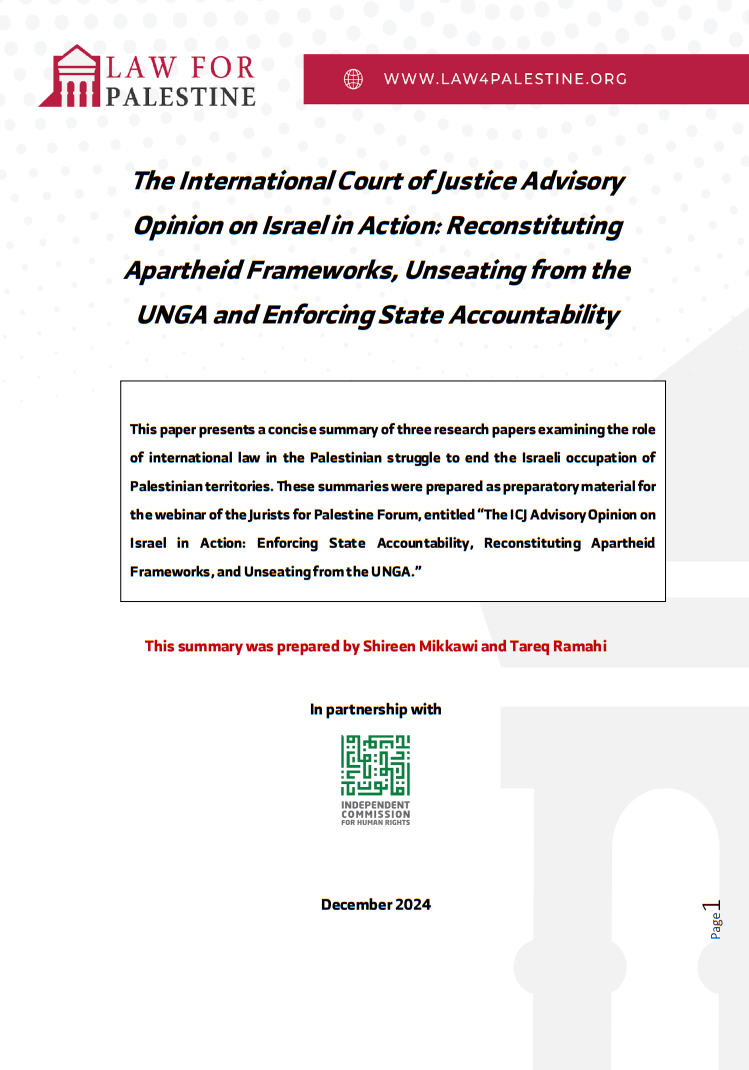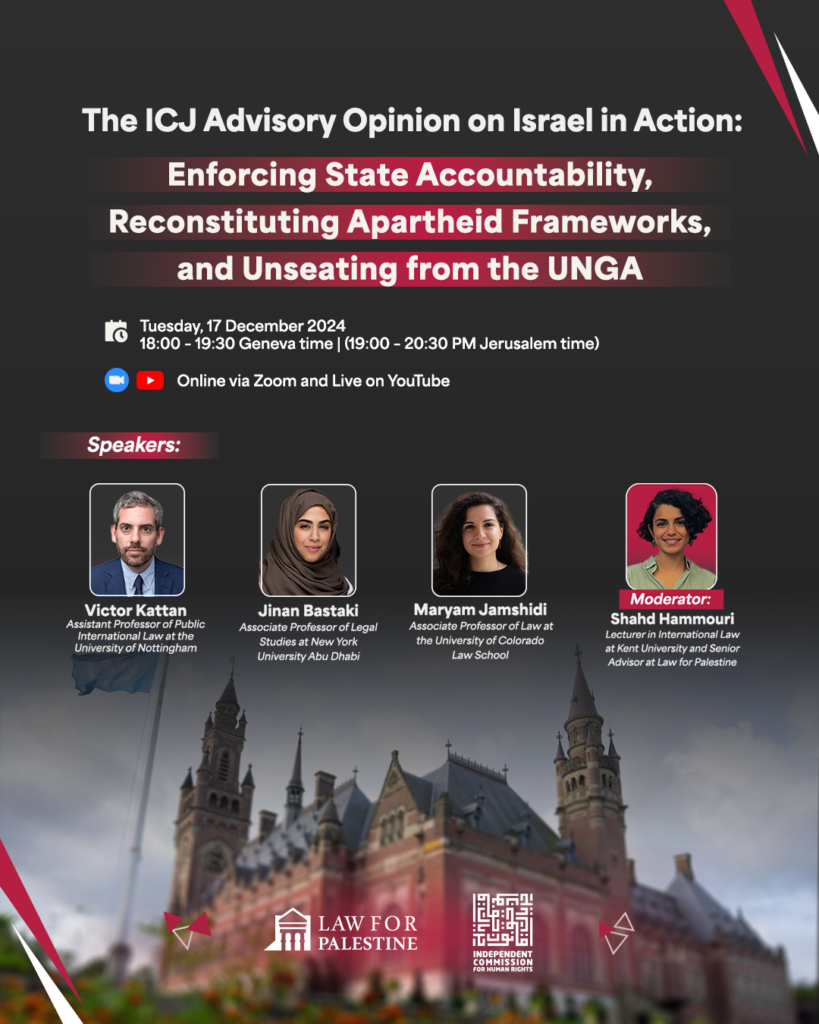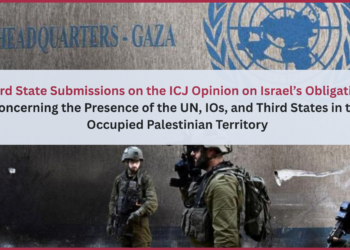Preparatory material | The International Court of Justice Advisory Opinion on Israel in Action: Reconstituting Apartheid Frameworks, Unseating from the UNGA and Enforcing State Accountability
This summary was prepared by Shireen Mikkawi and Tareq Ramahi
These summaries were prepared as preparatory material for the webinar of the Jurists for Palestine Forum, entitled “The ICJ Advisory Opinion on Israel in Action: Enforcing State Accountability, Reconstituting Apartheid Frameworks, and Unseating from the UNGA.” This paper presents a concise summary of three research papers examining the role of international law in the Palestinian struggle to end the Israeli occupation of Palestinian territories.
Summary:
- The UN General Assembly’s credentialing process, used historically to assess the legitimacy of State delegations and unseat apartheid South Africa, faces controversy when applied to single governments like Israel, as it bypasses UN Charter Articles 5 and 6, relies on unclear criteria, and risks being dismissed as politically motivated or antisemitic.
- The ICJ Advisory Opinion highlights Israel’s violations of international law, including the prohibition on territorial acquisition by force and the right to self-determination, drawing parallels with apartheid South Africa and supporting arguments for unseating Israel’s government from the UN General Assembly due to its illegitimacy, lack of representation, and systematic racial discrimination.
- The ICJ Advisory Opinion reaffirms the right to self-determination as a jus cogens norm binding on all States, providing a legal foundation for unseating Israel’s government from the UN General Assembly due to its violations of Palestinian self-determination, while addressing concerns about politicisation and conflicts with UN Charter Articles 5 and 6.
- Namibia’s written statement to the ICJ in July 2023 drew on its own history of apartheid to argue that Israel’s actions violate international laws prohibiting apartheid and racial discrimination, highlighting the crime against humanity status of apartheid under customary international law, the Apartheid Convention, and the ICC Statute.
- The Group of Three, a treaty monitoring mechanism under the 1973 Apartheid Convention, previously reviewed apartheid practices, including Israel’s policies towards Palestinians, and suggested re-establishing the group to address Israeli apartheid, with support from States Parties to the Convention advocating for action through the UN Human Rights Council or a dedicated mechanism.
- The U.N. Arms Trade Treaty prohibits arms transfers that may be used in crimes like apartheid, and an ICJ ruling on Israel’s actions as apartheid could strengthen legal challenges to arms sales, with implications for countries like the UK and others bound by international law, highlighting the need for re-establishing mechanisms to address Israeli apartheid practices.
- The escalating sanctions against Russia for its invasion of Ukraine, including asset freezes, financial system blockages, and trade restrictions, highlight the West’s selective enforcement of international law, as similar measures are not applied to Israel despite its long-standing violations of Palestinian rights, exposing a double standard in addressing international conflicts.






